- Home
- Adam Croft
Her Last Tomorrow Page 10
Her Last Tomorrow Read online
Page 10
She took medication for a while. Some sort of antidepressants or tranquillisers. It was strange seeing her so subdued, so completely apathetic. It was almost as if nothing I could say would rile her. It was actually quite spooky. It enabled her to cope with life, but she wasn’t the same person. She’d started to reduce her dosage already by the time she found out she was pregnant with Ellie, but that compelled her to stop taking them altogether.
The realisation of actually being pregnant was a strange one. We couldn’t quite believe it at first, but when we finally got our heads around it we were keen to do whatever we could to make sure the baby would be happy and healthy. We took no risks. Apart from Tasha continuing to go to work – something I told her I wasn’t happy about – everything seemed to be going well. It looked like it was going to hold us together. And then she began to change.
‘You heard anything this morning?’ I ask, before I rinse cold water around my mouth.
‘Not yet. They said they’d call if they had anything. All we can do is sit tight. I’m going to go stir-crazy if I just sit staring at the walls. I need to try and get my head straight. Could you do me a favour? Plug the bedside radio into the extension lead and bring it in here, will you? I could do with some musical accompaniment. I need to drown out this noise in my brain.’
‘Will you hear the phone if it goes, though?’
She looks at me as if I’ve just landed from another planet. ‘I can’t answer the phone from the bath anyway, can I? I was hoping you might be able to manage that.’ Her look is playful, but I doubt her intentions are.
Having untangled the wires from behind the bedside table, I bring the radio in and rest it on the edge of the sink unit. I freeze momentarily as I see the opportunity in front of me.
One of the many things Tasha has been nagging me about is getting the house rewired. Over a year ago we had an electrician in to fit a new double socket in the kitchen. He happened to mention that the house uses an old wiring system and isn’t properly earthed, nor is the fuse box fitted with an RCD, which would trip the circuit and stop you getting a serious electric shock if there was an electrical accident. Not a major problem in itself, but something that needs doing – granted. As far as Tasha was concerned, though, the house could catch fire and burn down at any minute, and she spent the next couple of months going on about how we should get the whole house rewired as if it was some small, insignificant job I could do in a Saturday morning. I don’t know much about electrics, but I know it’s not a small job.
I try to use my minimal knowledge of electrics to work out how much voltage runs through a digital radio. A hairdryer in the bath? Sure. A portable heater, even. Would a digital radio do the job? A large part of me doubts it, but I’m still faced with the opportunity to find out once and for all.
Does this fit my plan of the perfect murder? Perhaps. I wouldn’t necessarily be suspected, would I? After all, it’s difficult to run someone a bath, force them into it and lob an electrical appliance in without them putting up some sort of a fight. It’s not foolproof, but it’d take a hell of a lot of doing to try and convict me of anything. Could they somehow find out when the radio was unplugged from the wall and then plugged into the extension lead? The clock sets itself from a digital receiver, so there’s bound to be some sort of trace somewhere along the line. Could they cross-reference that with the temperature of the bathwater or the amount of wrinkles on her skin and work out that she couldn’t possibly have brought the radio in for herself? It seems a little far-fetched.
The most likely outcome is that very little would happen other than the radio dying and Tasha at best getting a zap no stronger than she would from licking a battery. Then how do I explain lobbing a radio into the bath with her? It would need to look like I’d done it accidentally. Perhaps nudge it with my elbow or hip as I walk past. Or lean over to give her a kiss and . . . Whoops! No. Too risky. I wouldn’t want to be in contact with her or the water if I’ve got even the slightest suspicion that there’s going to be 240 volts knocking about. Physics was never my strongest subject at school, and right now I wish that I’d listened more carefully.
There’s only so many times I can pad at my face with the flannel before she’s going to wonder why I’m still standing here, staring at the radio and at the water. If I’m going to do this, I need to do it now.
I take a deep breath and place my flannel back on the sink unit, just inches from the radio. I fold the flannel carefully in half, then into quarters and pat it down with the palm of my hand. I’m stalling for time here, I know it.
I turn and look at Tasha’s naked body lying in the bath, her eyes closed, her hair pooling around her neck and breasts, swaying in the water. She opens her eyes and smiles at me.
‘I’m sorry. I do love you, you know, Nick?’ she says.
I swallow. Hard. ‘I love you too.’
I force a smile and leave the room.
27
Nick
I know what media appeals are all about in missing persons cases. Especially when they concern missing children. McKenna told me it would help to publicise Ellie’s disappearance and ensure that people kept an eye out in case they saw her or had any information as to where she was. That’s all bullshit, though. Most people couldn’t tell one five-year-old from another.
There’s only one real reason why they do national media appeals when children go missing: it’s because they’ve got a suspect. And not only do they have a suspect, but they have a suspect sitting behind the desk doing the media appeal.
That’s why there’ll always be the random uncle, grandparent or family friend doing the media appeal with the parents. They want to see how their suspect reacts in front of a camera. Whether the crocodile tears come out. The police psychologists will be watching with their notepads at the ready, analysing every last twitch of an eyelid, every casual scratch of the nose.
Except this time there’s no uncle, grandparent or family friend behind the desk. There’s just me and Tash. And I know who I’ve got my money on as their prime suspect.
McKenna knows this, too. She knows that I know. She’s not stupid. When she told us about the media appeal she watched me with the anticipation of a boxer watching his opponent as the opening bell rings, ready for the first sign of a twitch. Of course, I told her I thought it’d be a great idea. Anything that’d help find Ellie. And I meant it, too, even though I know the chances of the appeal leading directly to her being found are extraordinarily slim.
Before I received the note, I’d have had no concerns. Now, though, I know exactly what’s going to be on my mind throughout the appeal. It’ll show on my face, too. It can’t not. If that’s interpreted by the psychologists as some sign of guilt, it could be curtains. All of the police’s resources will go into investigating me, trying to pin something on me in connection with Ellie’s disappearance. That doesn’t bother me one bit from a selfish point of view, as I had nothing to do with it. But it does mean that they won’t be looking in the right places, and that makes it even less likely that Ellie will be found.
It’s too late now to tell them about the Jen Hood emails. If I’d gone to them at the start, there would have been a tiny, wafer-thin possibility that they might have been able to track down who sent them. But since the kidnapper told me he’d kill Ellie if I told the police, I’m not going to take that risk. And now, with the time that’s passed, even if I did manage to find a way to tell them without putting Ellie at risk, they’d want to know why I didn’t tell them earlier. They’d look at my responses and decide I was going to go through with it. I’d become complicit. Could they do me for withholding evidence? Probably. I don’t know. But what I do know is that – as bizarre as it sounds – Ellie is actually safest where she is right now, as long as the kidnapper believes I’m going to do what he wants me to do. That gives me a little breathing space to try to get to the bottom of who’s doing this, or for the police to find him through their own means.
Just being innocent i
sn’t enough. Knowing you’re a suspect is what kills you. Any of us who’ve ever been in the same room when someone has discovered their phone or wallet has gone missing will know exactly what that feels like. Even though you know nothing about it, everyone knows there’s a chance it could be you. It’s a weird kind of awkwardness; a guilt with no reason to exist. But surely the psychologists would know that, wouldn’t they? The rational part of my brain that tells me so is being gradually worn away.
It’s all been arranged in a bit of a hurry, from what I can tell. I mentioned something of the sort to McKenna, but she told me it was important to do it as quickly as we could to maximise the chances of Ellie being found safe. ‘The first few days are the most important,’ she told me, as if I didn’t already know. She also tried to assure me that they’d done this a number of times before, and for me not to worry. The paranoid half of my brain tells me they do it that way to put their suspect under pressure. No time to prepare. Just sit him down and put him in front of a microphone and a camera and the nation’s prying eyes.
I don’t even know if it’s going out live or just being recorded for the evening news programmes. They’ve told me very little, considering I’m her father. That makes me immediately even more suspicious. I know I’ve got to put that out of my mind, though. Right now, I’m the father of a little girl who’s been snatched away from her parents. The focus is on finding Ellie alive and well.
McKenna opens the appeal by introducing herself and DC Brennan. The metallic insignia of the county police force sits proud on the temporary fold-out wall behind her as she leans forward purposefully on the desk, her hands clasped together.
What sickens me the most is that they’ve given me a pre-prepared statement. And not one pre-prepared by me, either. It’s one they’ve ‘had to word carefully to maximise our chances of success’, McKenna told me. It sounds more like a marketing plan than an appeal for a missing child’s safety, but I roll with it. It’s all part of their game.
Tasha looks at me and I take her hand in mine. I look out over the desk and make eye contact with a journalist. He holds it, just for a moment, and then looks down at his notepad as he scratches his ear. He knows, too. He must’ve seen this a hundred times before. He knows the drill.
I’m not even listening to what McKenna says, but I notice she’s stopped talking and is looking at me. Tasha nudges me slightly. I blink a few times, unfold the sheet of paper on the desk in front of me and start to read from it.
‘Since Ellie disappeared, our lives have been torn apart,’ I say, not sure how much emotion I should be putting into this. ‘Our little girl has been a constant in our lives for the past five years and all we want is to have her back home, safe and well. If you know where she is, we wish you no harm. We just want our little girl back.’ Wish you no harm? I want to rip your fucking head off. ‘Ellie, if you see or hear this, please let somebody know you’re safe. You’re not in any trouble, sweetheart.’
My voice cracks as I speak those last words. It sets Tasha off, which sets the flashbulbs of the press’s cameras off. That’s the money shot for their front page, they’ll be thinking. A great shot of two grieving parents. That’s what they want, isn’t it? Build the drama, sell the papers. It doesn’t matter how much of it is real.
And, right now, I don’t know how much of it is real.
I comfort Tash, my brain only really processing the noise of the cameras firing and flashing. Somewhere amongst the maelstrom, McKenna’s words rattle, distant and faded.
‘. . . if anyone has any further information, to call our incident room on . . .’
I close my eyes and try to push it all away.
28
Tasha
In many ways, the media appeal feels like a huge load off my mind. A weight off my shoulders. But then in other ways it feels like an enormous burden, as if we’re now under the watchful eye of the British public. I can’t help but think of the way in which the newspapers and the public have turned on victims in the past. I keep thinking of the Madeleine McCann incident and the way her parents have been vilified by certain people ever since. She was snatched from her hotel room in Portugal while on holiday, and her parents had to suffer the ineptitude of the Portuguese authorities and the venom and bile of the British gutter press. I pray to God that doesn’t happen to us.
I know there’ll be people who already suspect we have something to do with it. There always are. The police warned us of that prior to the press conference. They told us not to go on social networking sites, not to watch the news and to keep our minds focused on finding Ellie. They didn’t need to tell me – I know there are some sick bastards out there and I certainly have no intention of allowing them to make me feel any worse than I already do. Not that anybody could.
Opening it all up to a wider audience does have its advantages, of course. The idea is that more people will be on the lookout for Ellie and it might even scare the kidnapper into giving himself up. One thought which did occur to me, though, and which I’m struggling to shake, is that it might scare him into doing something stupid. If the media attention were ever to achieve the sorts of levels that the Madeleine McCann case did, there’s not a kidnapper on earth who’d think he could outsmart everyone else in the population. As much as I hope – desperately hope – that the media appeal will help find Ellie and bring her home again, I can’t help but worry that it might force the kidnapper’s hand the wrong way. All we can do is hope and trust in the police that they’re the experts and will help bring Ellie home.
Nick’s not so sure. He’s always been more sceptical. It’s probably the writer in him. He was furious after being taken in by the police, but I know a lot of that was him projecting again. He’s angry with himself. Deep down he knows he was in the wrong, both for leaving Ellie in the car and for keeping the Angela thing from me. I’m flickering between wanting to comfort my husband and wanting to watch him stew in his own misery, and that’s not healthy for any marriage.
I couldn’t say anything at the media appeal. What could I possibly have said? I can’t even understand my own feelings, let alone put them into words. I veer from anger to anguish, panic to desperation. But the overriding feeling is a sense of confusion. None of it makes any sense. Everything was fine, everything was normal. We had no warning. Things like this don’t happen to people like us. How can a perfectly normal family be having a perfectly normal day and then see their world turned upside down within a few seconds? And why? That’s the biggest question. But I can’t help thinking about Angela. Nick says there’s no way she’s responsible, but I’m not sure if I can believe him. How can I, after everything he’s kept hidden from me? How do I know he’s not trying, in his usual pathetic way, to protect me from things he thinks are going to hurt me? If he really wanted to do that, he could have started by looking after our daughter properly.
The problem is that there isn’t anyone else. We don’t really have enemies in our lives. There’s certainly no-one unhinged enough to take our daughter. Which just leaves the possibility of the passing opportunist. It sounds so cold and clinical to say it like that, but it’s better than having to face up to the P-word. I know Nick has suspected Derek, but I can’t see that, either. The police have searched his house and found nothing.
Either way, Nick needs to control himself and stop flying off the handle. What kind of lunatic goes and ransacks an elderly man’s house on a hunch? That’s something else that’s got me worrying about Nick. Up until the last day or two, I would have said he doesn’t have a violent bone in his body. Yet within the space of a few minutes I find out that he’s turned over our neighbour’s house and that he kidnapped a girl years back.
Kidnapped. It’s that word again. The one that won’t disappear. The one which, up until recently, seemed so prosaic and ordinary despite its negative connotations but which now carries the weight of the world on its shoulders. I just can’t seem to shake it. Nor can I shake the surprise that Nick’s name keeps cropping up alongside
it. Whichever way I look at it, he’s admitted to having abducted a girl in the past. Yes, he was drunk and under the influence of drugs, and yes, he says it was a one-off. And I believe him. Why shouldn’t I? After all, what possible reason could he have for wanting to kidnap our own daughter? There is no reason that I can think of. Media attention? A PR stunt? A cry for help? None of those make any sense. Nick has undoubtedly seemed unbalanced recently, but that’s only since Ellie’s disappearance. And anyway, who wouldn’t be slightly unhinged after their daughter’s been kidnapped? It’s a perfectly normal reaction. Isn’t it?
29
Nick
I feel strangely cautious about conducting any sort of research on my own computer now. The police have returned the car already but didn’t bother to do me the courtesy of letting me know they’d found nothing. Even though it’s back, I can’t shake the thought of the car being tracked or followed. So I slip on my shoes and leave the house, deciding to walk into town.
My first port of call is the library. I go inside and speak to the young girl at the desk about using their public computers. She tells me I’ll need to sign up for a library membership. Yeah, I know. A writer who doesn’t have a library membership.
Apparently it only takes five minutes to sign up. All I’ll need to do, she says, is type in my identification number and password and I can then use the computer. I don’t like the sound of this. The last thing I want is my research activities being logged against my name by a public body.
I want to avoid using the same internet café as I did the other day. I don’t want my face to be recognised. I need to keep covering my tracks. The problem is, internet cafés aren’t quite as popular as they were.
I know there’s an internet café in the next town. At least there was six months ago when I last drove past. It’s a good five miles away, but I decide I could do with the walk, anyway.

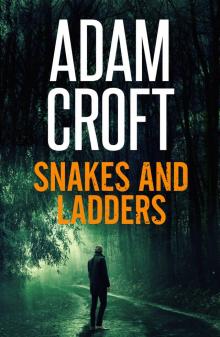 Snakes and Ladders
Snakes and Ladders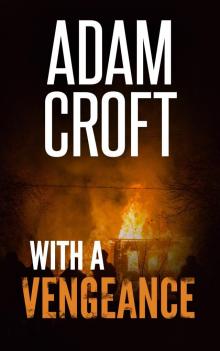 With A Vengeance
With A Vengeance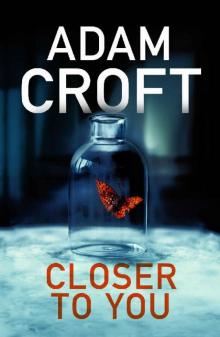 Closer to You
Closer to You In Cold Blood
In Cold Blood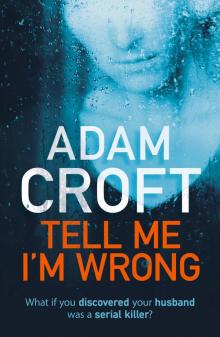 Tell Me I'm Wrong
Tell Me I'm Wrong![[Knight and Culverhouse 09] - In Plain Sight Read online](http://i1.bookreadfree.com/i/03/16/knight_and_culverhouse_09_-_in_plain_sight_preview.jpg) [Knight and Culverhouse 09] - In Plain Sight
[Knight and Culverhouse 09] - In Plain Sight Dead & Buried
Dead & Buried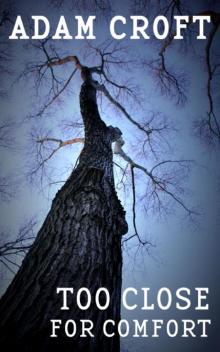 Too Close For Comfort
Too Close For Comfort What Lies Beneath (Rutland crime series Book 1)
What Lies Beneath (Rutland crime series Book 1)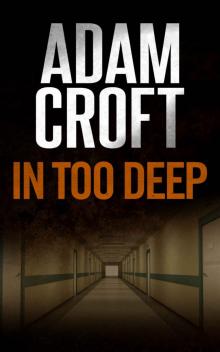 In Too Deep (Knight & Culverhouse Book 5)
In Too Deep (Knight & Culverhouse Book 5) Gone
Gone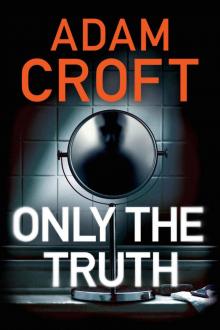 Only the Truth
Only the Truth Kempston Hardwick Mysteries — Box Set, Books 1-3
Kempston Hardwick Mysteries — Box Set, Books 1-3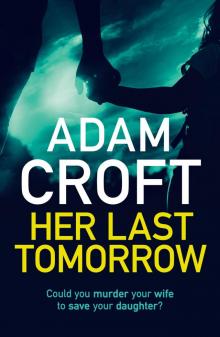 Her Last Tomorrow
Her Last Tomorrow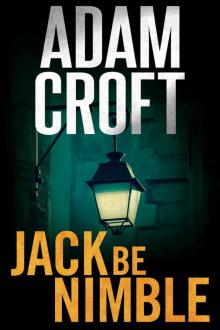 Jack Be Nimble (Knight & Culverhouse Book 3)
Jack Be Nimble (Knight & Culverhouse Book 3)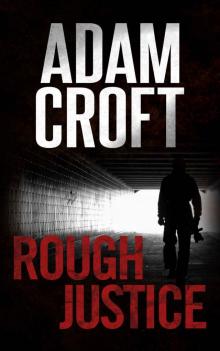 Rough Justice (Knight & Culverhouse Book 4)
Rough Justice (Knight & Culverhouse Book 4)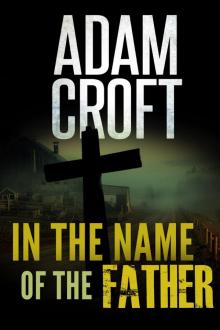 In the Name of the Father
In the Name of the Father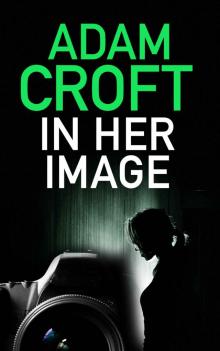 In Her Image
In Her Image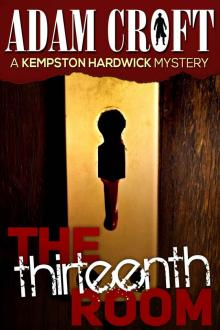 The Thirteenth Room (Kempston Hardwick Mysteries Book 4)
The Thirteenth Room (Kempston Hardwick Mysteries Book 4)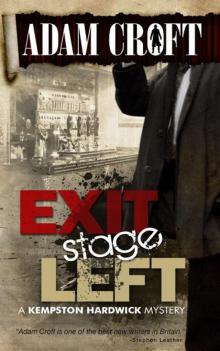 Exit Stage Left (Kempston Hardwick Mysteries Book 1)
Exit Stage Left (Kempston Hardwick Mysteries Book 1)